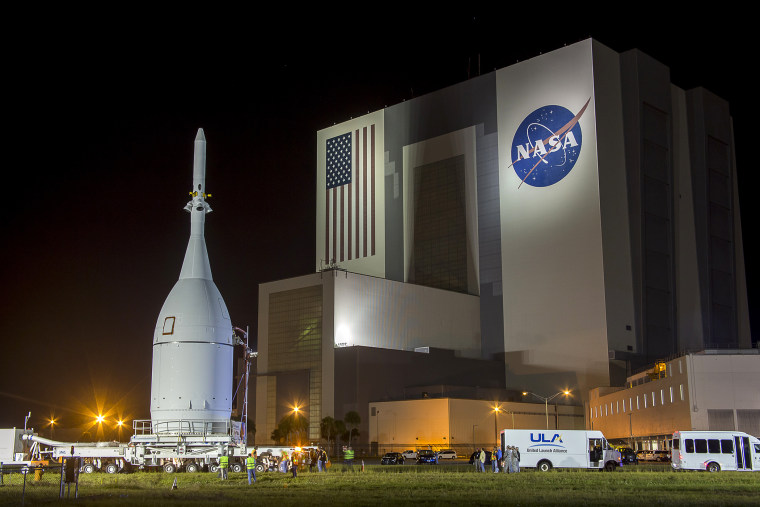There was some unexpected drama on the Senate floor yesterday, when Donald Trump's choice to lead NASA, Rep. Jim Bridenstine (R-Okla.), didn't have the votes to advance. Sens. John McCain (R-Ariz.) and Tammy Duckworth (D-Ill.) were out, and Sen. Jeff Flake (R-Ariz.) initially balked, leaving the chamber tied, 49 to 49.
Ordinarily, Vice President Mike Pence would break the tie, but he was 1,000 miles away in Florida.
Eventually, Senate GOP leaders made some private concessions to Flake; the Arizonan changed his vote; and the drama came to an end. All of which makes this a fine time to take a closer look at the man who'll soon lead NASA thanks to the unanimous support of Senate Republicans. Vox had this report yesterday on Bridenstine -- the first politician who'll oversee the space agency.
As a politician, Bridenstine has hedged on climate change, an issue NASA scientists study and track in many different ways. During his confirmation hearing in November, Bridenstine agreed that humans are the driving force behind climate change, but he would not agree with the assertion that human activity is the primary cause of it. It's an odd position to hold as the leader of an agency that provides some of the most comprehensive data on climate change in the world.NASA has a staff of 17,000 and a budget of nearly $19 billion (not to mention the numerous contractors it works with). Bridenstine's experience of managing a museum in Tulsa pales in comparison to the enormous complexity of NASA.
Questions about Bridenstine's qualifications grew louder when the Daily Beast reported this week that when the Oklahoma Republican led a space museum in Tulsa, it suffered hefty financial losses, and "some of the losses involved the use of the non-profit's resources to benefit a company that Bridenstine simultaneously co-owned and in which he'd invested substantial sums of his own money."
Bridenstine denied any wrongdoing, and as of yesterday, literally no one in the Senate Republican conference cared.
That includes Sen. Marco Rubio (R-Fla.), who was a critic of Trump's NASA pick last summer. Politico had this report in September:
Rubio said he and Nelson "share the same concerns" and worry Bridenstine's "political baggage" would weigh him down in a GOP-led Senate that has grown increasingly resistant to Trump. NASA can't afford that, Rubio said."I just think it could be devastating for the space program. Obviously, being from Florida, I'm very sensitive to anything that slows up NASA and its mission," Rubio told POLITICO. "It's the one federal mission which has largely been free of politics and it's at a critical juncture in its history."
Rubio nevertheless joined his party in backing Bridenstine yesterday, saying the pending retirement of acting NASA director Robert Lightfoot meant the agency needed someone, and the Oklahoma congressman was better than no one.
